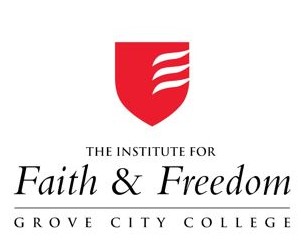Right Title for Arizona Fight: ‘Much Ado About Nothing’

The passage by a Republican legislature, and subsequent veto by a Republican governor, of the wildly controversial “Religious Freedom” Law in Arizona qualifies as neither triumph nor tragedy. Democrats may react to the outcome of the dispute by invoking a Shakespearean comedy: “All’s Well that Ends Well.” For the rest of us, other titles from the Bard seem far more appropriate, including “A Comedy of Errors” and “Much Ado About Nothing.”
The furious fight over SB-1062 amounts to nothing because its outcome changes nothing— altering no aspect of the status quo in Arizona or around the country. The fact that Governor Brewer vetoed the bill in no way limits the religious liberties of the people of her state, and even had she chosen to sign the legislation those rights wouldn’t have expanded, while the privileges of gay couples would have similarly remained entirely unabridged.
Despite the idiotic press malpractice that led to frequent references to Arizona’s “Anti-Gay Law” nothing in the bill attacked or even referenced homosexuals. The feeble, vaguely legislation merely authorized citizens to invoke arguments of religious conscience when faced with legal action against them by government or private parties. But the legislative language explicitly limited the effectiveness of such claims to those cases when believers faced an undue “burden” on their religious free exercise, and when governmental policy or aggressive litigation imposing that burden served no compelling state interest or social goal.
In other words, the “Anti-Gay Law” left it up to judges to determine when and where religious faith would be allowed to trump the presumed social good of respect for gay rights. With the law’s defeat, it’s judges who will still get the ultimate say in such close calls. Veto or no veto, the State of Arizona rallied to the slogan, “All Power to the Judges!”
Meanwhile, the sound and fury (one more Shakespearean allusion!) over the lost, lamented legislation obscures a hidden but significant consensus over the balance between gay rights and religious liberties. Not even the most enthusiastic backers of the new law would argue that faith-based arguments should beat civil rights rules in every case. And even the most fervent critics of SB-1062 must renounce the notion that religious concerns should nevertake precedence over governmental protections for racial, religious and sexual minorities.
To challenge the left first: imagine a gay, Christian florist who is approached by representatives of the notorious Westboro Baptist Church in Topeka, Kansas, in the name of its rabidly homophobic founder, Fred Phelps. They ask our friendly florist to prepare an elaborate arrangement in the shape of a cross with the wording, spelled out in tulips, “God Hates Homos.”
Would any sane observer suggest that the authorities should compel the fictional flower-vendor to deliver the decoration with a slogan that demeans his own faith in a God who loves gay and straight with equal beneficence? Imagine that the nasty folks from the hate-mongering church launched a law suit alleging religious discrimination based on the florist’s refusal to respect their faith. Wouldn’t all reasonable people agree that the florist should have the ability to respond to that attack with reference to his own firmly-held theological understanding?
On the other side, arguing for occasions when religious considerations must be over-ridden, suppose there was a restaurateur in Northern Idaho who has been a long-time follower of Pastor Richard Butler, founder of the “Christian Identity Movement” and leader of the Aryan Nations. Assuming the operation of an elegant dining establishment serving only White Aryan food (whatever that might be), our host feels outraged one evening when an interracial couple – a blond, blue-eyed guy holding hands with his a beautiful black date – asks for a table to sample the exotic cuisine. It’s not hard to imagine that the owner of the restaurant would react with indignation, ordering the mixed couple to leave his premises and denouncing them in the harshest possible terms for their crime of race-mixing. In the ensuing lawsuit, the proprietor defends himself by citing his profound commitment to his religious faith; after all, Christian Identity proudly describes itself as “a dynamic blend of Christianity and Naziism.” Surely, his insistence on defending his faith must give way to the compelling social need to honor federal, state and local civil rights laws protecting racial minorities from blatant discrimination.
Objections to these hypotheticals will center on the questionable nature of the two extreme, way-out-of-the-mainstream religious groups referenced in the stories – the Westboro Baptists and the Christian Identity movement. Surely, any reasonable jurist would look askance at their religious claims and respond more favorably to the other side of the dispute in each case. But that argument merely re-enforces the most important point: that some claims of religious conscience deserve sympathetic attention, and others do not. The case for religious liberty isn’t an all-or-nothing, one-size-fits all argument.
It is, in the last analysis, also an unnecessary argument. The cases that I’ve conjured out of my imagination are only slightly more far-fetched than the cases inevitably cited by the dueling disputants on the Arizona Law. No gay couple, happily planning a wedding or commitment ceremony, must sue some uncooperative florist or photographer or baker in order to enjoy a beautiful occasion. The reason for making a case out of such encounters has nothing to do with personal protection and everything to do with forcing people who don’t choose to share your joy to change their core principles at your behest. A gay customer turned down for wedding services might properly decide to boycott the offending operator but trying to compel him against his will to honor your nuptials hardly helps the cause of homosexual acceptance or warm-hearted brotherhood.
Yes, I would feel offended if I approached a florist for our son’s upcoming Jewish wedding, and the merchant told me he wouldn’t provide the services because God hated Jews. But I can’t think of a more idiotic course than launching a lawsuit to compel his cooperation.
On the other hand, that imaginary anti-Semitic merchant also enjoys a less destructive alternative: he could have checked his schedule and determined that he was “too busy” to work in our synagogue in the week of the wedding, or even suggested that our celebration conflicted with one of his solemn Aryan Nation festivals. In that case, I might feel suspicious of his animus but I would find little ground to sue. In the same way, couldn’t all the florists and bakers and photographers and others who have become the targets of hectoring lawsuits avoid all trouble by steering clear of declarative statements about their opposition to gay marriage?
Sure, we’ve all got an inalienable right to denounce the re-definition of marriage, or even to declare that homosexuality remains a grievous sin. But maintaining that right hardly requires that we exercise it in a commercial context that will very possibly lead to litigation.
Christians or Orthodox Jews with strong opinions against the assault on traditional marriage (and I am certainly one of them) should feel free to express those sentiments in suitable forums, while giving potential customers we don’t choose to serve some other excuse for why we turn down their business.
The insistence on confrontation on both sides of the issue wastes time and energy, while poisoning public discourse over silly claims of grievance and righteousness. Every gay customer who wants wedding support and is willing to pay for it will be able to find it without a lawsuit, and every religious merchant who chooses not to take such business can manage to avoid it without explicitly cloaking his position as a divine obligation.
As battles over values and decency continue to rage we ought to remember that not every minor skirmish – like the Arizona insanity – amounts to Armaggedon.
This column originally appeared at TruthRevolt.org on February 27, 2014.




















